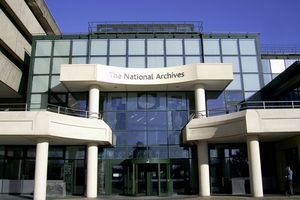Court judgments made accessible to all at The National Archives
In a boost for open justice, court and tribunal judgments are now freely available from The National Archives.

- The preservation, storage and publication of court and tribunal judgments is now managed by The National Archives
- Judgments can be found via the free caselaw service on The National Archives website
- Users can now search and browse records making it easier to find specific judgments
As the official archive and publisher for the UK Government, The National Archives has long-standing experience in storing and publishing information securely. Under the Archive’s expertise, they will be preserved, managed and made widely accessible for years to come.
New court and tribunal decisions from the superior courts of record – The Supreme Court, Court of Appeal, High Court, and Upper Tribunals – will now be available on The National Archives Find Case Law site.
This free online service will be easy for anyone to use, from lawyers to members of the public. Records will be secure and easily searchable, even on mobile phones.
Justice Minister, James Cartlidge, said:
As we continue to build a justice system that works for all, the National Archive’s new service is a vital step towards better transparency. It will ensure court judgments are easily accessible to anyone who needs them.
Our first official Government record of judgments is a modern one-stop-shop that will benefit everyone, from lawyers and judges to academics, journalists and members of the public.
Dr Natalie Byrom, Director of Research at The Legal Education Foundation, said:
The launch of the new judgments service at The National Archives is a hugely significant step for open justice. For the first time, the retention and preservation of judgments from courts and tribunals in England and Wales is guaranteed under primary legislation, as is the right for the public to obtain access to these documents.
The investment in modernising the processes whereby judgments from courts and tribunals reach publication puts in place the infrastructure needed to build towards a complete record- something which is vital for research and policy.
We are excited and encouraged by the progress made to date and look forward to seeing how the service develops over coming weeks and months.
Judgments provide invaluable information for anyone who requires them for case preparation or research purposes.
Over the coming months and years, The National Archives will work with the Ministry of Justice and the judiciary to expand coverage of what is published and made accessible to the public, including judgments from the lower courts and tribunals.
Note to editors
- BAILII will continue to provide free access to English and Welsh judgments, and other jurisdictions including Scotland, Northern Ireland, the Republic of Ireland and the Commonwealth, alongside their other charitable endeavours.
- Under the Open Justice license any member of the public or organisation can continue to easily access judgments for free. More information on the Open Justice license
- To re-use judgments on a computer, a user must complete a free application to The National Archives. More information on the Transactional license and the application process.
- Scope of coverage will grow over time as The National Archives actively migrates and acquires legacy judgment and tribunal decisions. Judgments held on government websites will be relocated to widen the coverage of the service as far as possible.
- The British and Irish Legal Information Institute (BAILII) is a charity that has been contracted to publish Court and Tribunal judgments on behalf of the Lord Chancellor and have provided a valuable service. As this contract expires, The National Archives will assume the responsibility of judgments storage, preservation and publication. BAILII will receive future judgments from Case Law under licence.